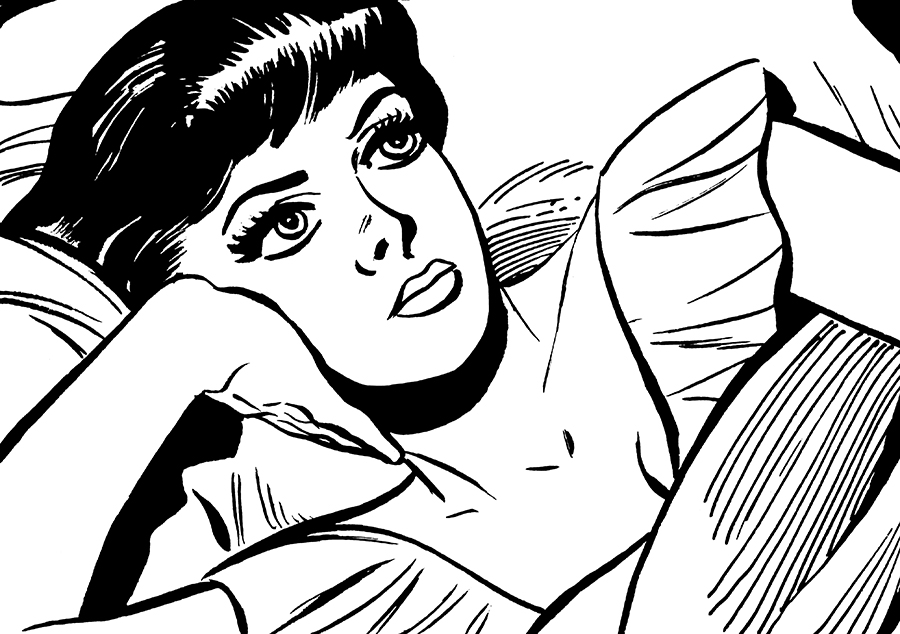By Cheryl Steinberg
Everyone experiences a bad night’s sleep from sleep from time to time, you know, those nights when you lie awake for hours trying desperately to go to sleep but can’t. And then you start worrying about how little sleep you’ll get if you fall asleep now or…now; and how awful you’re going to feel tomorrow.
In fact, one-third of the world’s population experience short-term sleeping difficulties. These usually last only a few weeks. But for an unlucky few, these sleep disturbances may last a lot longer and lead to a diagnosis of insomnia.
Insomnia is described as a person’s inability to fall asleep, stay asleep, and/or else wakes up too early at least three times a week for at least three months.
Insomniacs experience persistent tiredness, low energy and difficulties with concentration, attention and memory. They may feel down, stressed or anxious, not only about getting a good night’s sleep but about their ability to do their daily activities.
How Do You Treat Insomnia?
If you are experiencing insomnia, a visit to your doctor might only result in getting a prescription for sleeping pills. But sleeping medications are just a Band-Aid, only providing short-term relief. Furthermore, they can be harmful and are often times highly addictive. For people in recovery from drugs, medications like Ambien are risky.
The good news is that there are other ways to treat insomnia, without the use of these powerful medications. Successful treatment of insomnia requires creating new, healthy sleep habits.
Here are 7 ways to treat insomnia.
#1. Establish a relaxing bedtime routine
Maybe it’s drinking warm milk or a hot cup of tea, or maybe a hot shower and some yoga. Get in the habit of doing things that help you relax and get in sleep mode.
#2. Limit the use of smart devices before bed
Also, using your smart phone or tablet before bed can interrupt your circadian rhythms, which regulate your sleep cycle. Smart phones and even flat screen televisions emit blue light, which is basically translated as daylight by your body, thus your body thinks it’s time to stay up even though it’s now one in the morning and you’re trying to fall asleep.
#3. Keep work and sleep spaces separate
And refrain from using these devices in bed. If you mix your work space with your sleep space, that is, using your bed for both, when you try to fall asleep, your body gets mixed signals about what it’s supposed to be doing: working or sleeping.
#4. Don’t fight your insomnia
If you can’t sleep, don’t stay in bed, tossing and turning and getting more frustrated. Instead, get up and do a relaxing activity, such as reading a book. Go back to bed only when you feel sleepy again.
#5. Web-based treatment
Another credible alternative is web-based treatment. Research from Japan to America shows that, for some people, online insomnia treatment modules may be as effective as visiting a health professional in person. Online programs can help you to practice good sleep hygiene habits, change unhelpful sleeping patterns and reduce the worry that can contribute to insomnia, helping you to get a better night’s sleep.
#6. Exercise regularly
Regular exercise has a bunch of health benefits – too many to name here. But, when it comes to insomnia, getting into a regular exercise routine can help. Besides getting your body to work at its optimum level, it also basically tires you out come evening time.
#7. Talk to your therapist
If you’re still having trouble despite trying all of the things mentioned above, then consider talking to a therapist. Cognitive Behavioral Therapy (CBT) has been found to reduce sleeping difficulties by 50% on average, and reduces insomnia symptoms to a level where they are no longer considered clinically severe.
The way CBT works is that it re-trains people to view the bedroom as a place of sleeping instead of a place where they lie awake tossing and turning and worrying about not sleeping. CBT also helps people change their lifestyle and sleeping environment, learn relaxation skills and challenge the unhelpful worries and beliefs that contribute to insomnia.
Got a lot on your mind? Have become physically dependent on drugs, even sleeping pills, and are still suffering from insomnia. It’s hard falling asleep with the weight of the world on your shoulders. Once you admit that there’s a problem for which you need help, the rest is easy. Call toll-free 1-800-951-6135 to speak with an Addiction Specialist today.
